#and my character keeps lil baggies of it in his hat
Explore tagged Tumblr posts
Text
sometimes the bit requires you to add weird things to your pinterest board....just added trailmix ideas to corri's board....for the bit
#the bit is that trail mix is what rations are made of#and my character keeps lil baggies of it in his hat#and just bought a ton of it after a year time skip#and is trying to find ways to add to it so its more interesting#tldr needed trail mix ideas asdfghjk#sam plays dnd
3 notes
·
View notes
Text
The entertainment industry in America is imbued with racist ideology, and gaps in representation and wages between actors of color and white actors are reigning free. Black actors are sometimes more successful than their white counterparts, but even then they’re not being recognized or compensated in the same way. I observe this from a privileged lens as a white person, and though I have struggled economically and still do, I have the privilege that comes with whiteness. Here I will attempt to communicate some of what I see as disparities and racist ideologies in the American entertainment industry today.
I saw the most recent Star Wars movie “Solo” when it came out on Netflix. Alden Ehrenreich plays Han Solo, our lovable, orphaned, thief-but-for-the-right-reasons protagonist. He’s moving up through the ranks, stealing for the noble cause of one day being reunited with his adolescent crush Qi’ra (Emilia Clarke). Donald Glover plays Lando Calrissian, the owner of the Millennium Falcon. His methods for acquisition of the Falcon are under constant scrutiny, and he is portrayed as the crook, with little back story. When white writers Jonathan and Lawrence Kasdan created this story, did they intend to cast Lando as a black man, or was it perhaps the casting agency who thought Glover would be good for this supporting role?


When Donald Glover was offered the job, he faced a choice. Did he want to be in the new Star Wars movie if he played a thief? There is a sacrifice made when an activist musician and comedian takes a high caliber role that potentially stereotypes him based on race. Certainly the circumstances are unique for each actor, but when a black entertainer is given an opportunity to succeed, but there is a wage gap between black and white entertainers, as well as male and female actors, and intersections of these different categories work like a confusing math problem that becomes easy to distill: there is disparity.
Sure, films like Black Panther are working against subjugation by taking black characters into the forefront of the picture, but what goes on behind the scenes is still inequity. It is generally stated that Chad Boseman who plays Black Panther earned $500,000 for his appearance in the film, and around 2-3 Million for Avengers, Infinity War. Robert Downey Jr. however, earned $500,000 for the first Iron Man, and earned a sickening $40-$50 Million for Infinity War. (QUORA.COM, 2019) (MENXP.COM, 2019)
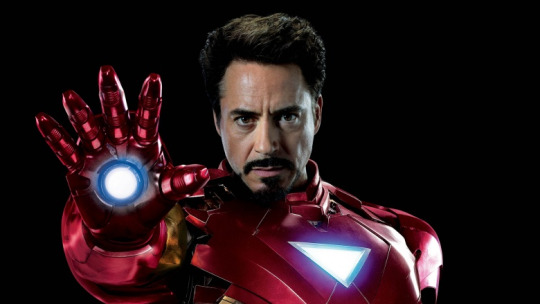
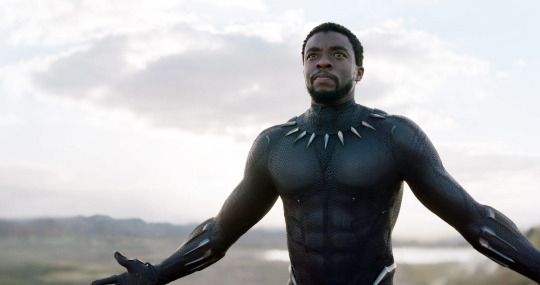
Entertainers with more weight in the industry based on previous successes gain more creative independence and move up in the income ranks based on that success. But roles and incomes are limited for black actors in the mainstream, and when you see a black actor or hear a black musician, what parts of their blackness are being commodified and to what end can they be undervalued as artists when their bodies and voices are being harnessed to entertain?
According to Forbes, Black Panther grossed over 1.3 Billion Dollars, more than Titanic, one of the highest grossing films to date (Forbes, 2018), Whereas the first Iron Man grossed less than half that, close to 318 Million. (Box Office Mojo, 2019). There are some lurking variables affecting the difference in Boseman and Downy Jr.’s salaries in Infinity War, like that fact that Downey Jr. has appeared in more films than Boseman (IMBD, 2019), but the key factor in the wage gap here is clearly white privilege. This phenomenon is hard to name because acknowledging it opens up hundreds of years of dialogue on oppression and dispossession which is painful to talk about, but it is impossible to ignore if you want it to change.
Coincidentally, Donald Glover’s hit song This is America was co-written by Swedish computer Ludwig Göransson , who also wrote the score for Black Panther. Göransson speaks to that experience in an interview with Complex.com last year:
“What I’ve been working with, and really trying to be aware of, is how you take traditional music from these different countries and put electronics and big orchestra on top of that while keeping the same sounds,” he said. “It’s been really challenging. I went to west Africa and South Africa for a month to do research and record a bunch of different musicians for the score. I brought that back to my studio and, for the past year, I’ve been figuring out ways to preserve the essence of that music and try to make it cinematic to fit this superhero universe.” (COMPLEX.COM, 2018)
So where are these nameless musicians from Africa credited in information on this blockbuster’s soundtrack? Nowhere that I could find. Were they paid anywhere close to what Göransson received as the Composer for the film?Do they receive royalties from their performances?
Michelle Alexander speaks to new manifestations of racism in her book The New Jim Crow, a book which according to a 2018 article in The New York Times is banned in prisons in North Carolina and Florida. (Bromwich, 2018)
“In the era of colorblindness, it is no longer socially permissible to use race, explicitly, as a justification for discrimination, exclusion, and social contempt. So, we don’t. Rather than reply on race, we use our criminal justice system to label people of color “criminals” and then engage in all the practices we supposedly left behind. Today is it perfectly legal to discriminate against criminals in nearly all the ways that it was once legal to discriminate against African Americans…we have not ended the racial caste in America; we have merely redesigned it.“ (Alexander, 2012)
And that’s exactly what is going on in the entertainment industry today. We are redesigning racism with wage gaps, divisions of screen time and biased survival in apocalyptic pictures (Infinity Wars,) and portraying black actors as thieves and sidekicks (Solo,) while black rappers in the mainstream sing about prison time, womanizing, gold chains, and street drugs, perpetuating these images to the public. In Lil Baby’s song Pure Cocaine, which is #24 on the Billboard rap charts as of April 5th, 2019, he says:
“When your wrist like this, you don't check the forecast/Every day it's gon' rain (every day it's gon' rain), yeah/Made a brick through a brick, I ain't whip up shit/This pure cocaine (this pure cocaine), yeah/From the streets, but I got a little sense/But I had to go coupe, no brain, coupe no brain/I ain't worried 'bout you, I'ma do what I do/And I do my thing, do my thing”
Chris Holmlund makes observations of the entertainment industry’s racist ideology flattening the Whoopi Goldberg into a tool for the white protagonists to connect in the movie Ghost in his book Impossible Bodies:
“Garishly dressed and made up, Oda Mae [the crook turned accessory to the white protagonist’s happiness, played by Goldberg] looks ridiculous when she visits Molly at Sam’s urging. “I don’t see what’s wrong with what I’m wearing,” she complains, voice off over a bird’s eye shot of Manhattan.
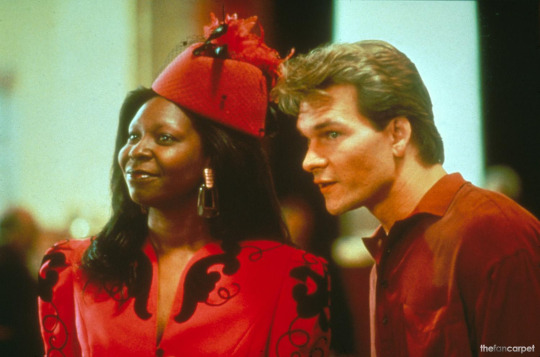
The next shot shows her striding along, resplendent in a badly fitting rose-colored jacket, black flounced skirt, black stockings, white net gloves, bouffant black wig, and rakish hat. Her legs splay apart awkwardly above spike heels. In African leggings she later seems more at ease, but she never looks as deliciously fragile as Molly [Demi Moore] does in her pixie haircut, baggy sweaters, and spaghetti strap T-shirts.
No wonder, then, that Oda Mae lends her body to the dead Sam when he wants to hold and kiss his wife one last time. “O.K., O.K., you can use me,” she says, “You can use my body. Just do it quick before I change my mind.” Orlando at least submersed himself in her, before reemerging in ghostly superimposition to hear his wife’s response. Sam simply replaces her, obviating the lesbianism implicit in a first, teaser, closeup of Molly’s white hands held by Oda Mae’s black ones, by suddenly appearing in medium shot to wrap his strong arms protectively around his tremblingly eager widow’s torso.” (Holmlund, 2002)
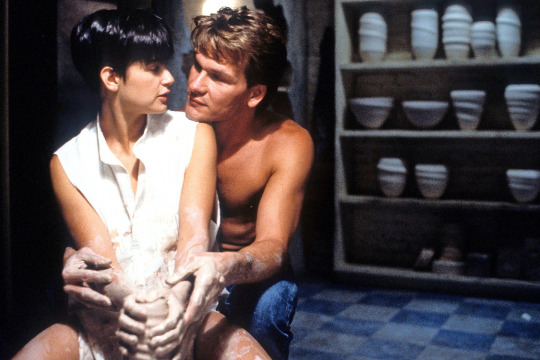
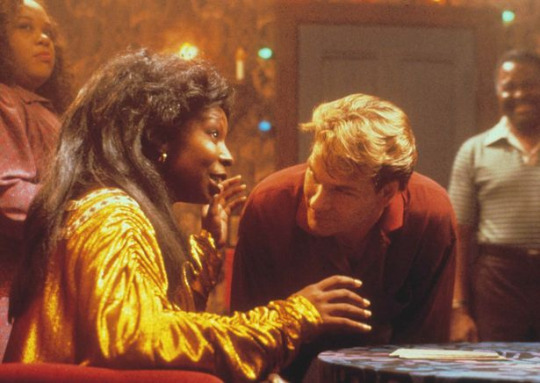
This example from the 1990 film may show that movies have come some way in representation of black characters, but Lando’s role in connecting Han Solo with his love Qi’ra seems to follow a similar trajectory. Epigenesis is painful, and there are many steps back accompanying each step forward in how ideologies can be reshaped. In 2010 there was one such instance of painful steps backward which instigate change in the 15th annual broadcast of the Victoria’s Secret Fashion Show, which aired on CBS. A summation of the event from The Color Complex by Kathy Russell-Cole, and Drs. Midge Wilson and Ronald Hall follows:
“Over 9 million viewers, the largest audience yet, tuned in to watch thirty-four female models, six of whom were women of color, parade around in lingerie and little else. The display of wares was organized around six differently themes sets, and in each, even the country-themes one featuring a barn and blond wigs, the subset of “girls” participating was racially integrated-with one notable exception. The single themed presentation in which the producers saw fit to showcase only the six models of color was the segment entitled “Wild Thing.” The setting was a jungle and the models entered wearing nothing more than African wraps on bodies covered in tribal body paint. From the African-American community could be heard a collective moan: “Seriously? Again, you put us back in the jungle?”
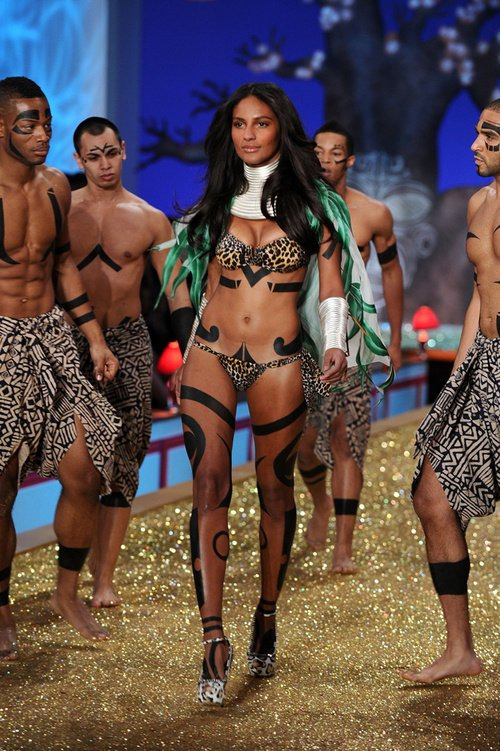
Since before the Civil War, the dominant White culture has abused and manipulated images of African Americans, usually for the purposes of fear, humor (i.e. what Whites thought was amusing,) and marketing.” (Russel-Cole/Wilson/Hall, 2013)
Awareness of these disparities is the key to unwinding what large entertainment corporations are continuously feeding to the public. I encourage you to question the lyrics on the radio, and ask yourself who is writing them, who is singing them, and for what reason. Watch the behaviors of actors. What are they promoting? Mainstream media is engineered by corporations to succeed with awareness of what consumers will buy into. It’s your responsibility as the consumer to shape the reality of the entertainment industry, and equality on and off-screen.
#white privelage#blacklivesmatter#disparity#entertainment#robert downey jr#solo#chadwick boseman#whoopi goldberg#demi moore#wage gap#wearethe99%#universal#hollywood#activism
1 note
·
View note
Text
Tattoo Artist!Hoseok
And now it is time for our hope, our angel, a real life puppy who is so fucking pretty like I need a solid minute to talk about it, he’s stunning, he’s got those beautiful eyes and that bright ass smile that you just gotta smile along with and those cute lil cheeks you just wanna pinch even his forehead is nice like just process that, a forehead is nicE how does he make that a thing idek, Jung Hoseok aka J-Hope aka hobi
So for this series, Yoongi, Namjoon, Jimin and Jungkook’s parts have all been done so I’ll just be finishing the series off with the remaining hyung line and Tae, I did Jin’s post yesterday so now we’re onto hobi
This is gonna feature father!hobi (all of the father related posts are here) bc I don’t feel like I’ve done father!hobi enough for my taste so for everyone that hasn’t read the post, he’s got three children, two sons and a daughter (the daughter is the youngest)
I’ll be doing the visuals first bc I love visuals they’re so aesthetic to me like it’s just so nice to think about that shit
I gotta do the brownish reddish hair with the forehead!hobi I just gotta it’s probably my favorite look on him it was in one of the Ceci photoshoots (I think it was for their 20th anniversary or something like that) and it was such a good look oh my god wow
I love it when he has messy hair like messy hair on pretty much anyone is almost always my favorite but hobi makes it look s o fucking good sign me the fuck uP
Onto the tattoos bc he’s definitely got a few, he’s got a half sleeve on his right arm that is slowly but surely going higher and higher up his arm as time goes by but he’s obviously pretty busy running his own tattoo shop so he doesn’t have much time to chill out and get a tattoo done
He’s got a lil eyebrow piercing and some on his ears
He’s got a few on his fingers, some on his sides, one on his calf, some on his left arm, he’s got them all over his body but they’re still pretty spaced out (that may change in the future but he’s content with it for a while)
Also it’s time for some head canon but head canon that hobi has a reference tattoo to each of the bbys and you, he’s got the first letters of all the names on the inner parts of his fingers
OkaY so I was minding my own business and I looked up hobi’s airport fashion bc that’s typically how I get inspiration for the clothes bc I want it to be something they’d actually wear off stage and there was this one picture of all black!hobi I scream
He had black hair and then sunglasses and then a black t-shirt and black jeans and his thighs are doing the thinG and it’s just wow oh wow what a great day this is the sun is out birds have begun to sing
I think tattoo artist!hobi would be a lot like hobi in the fashion sense, I feel like hobi wears a lot of comfy clothes, baggy shirts, warm jackets, some cute ass hats
Ight but another head canon that one day before work, bby girl gives hobi two lil pigtails and he totally forgets about it so he’s sitting there designing a tattoo and the boys are all losing their shit Jimin just about falls over laughing
I feel like hobi’s tattooing style would involve a lot of colors, hobi is so bright and cheerful and I feel like his tattoos would have a whimsical feel to them, there’s character to it it’s not just a drawing on someone’s skin
I also feel like hobi’s tattoos would be more of the larger side like a lot of back tattoos or sleeves and he has zero problem dedicating countless hours to one person if it means they walk away with a tattoo they love
Similar to Jin, he’s really really patient with customers like they can change their mind a hundred times, they can leave, they can switch the location of the tattoo, he doesn’t mind bc he really wants them to love that tattoo, that’s gonna be on their bodies for a long ass time so he wants to do every thing he can to make sure it’s perfect for them he’ll redesign a tattoo as many times as it takes as long as they walk out happy
He doesn’t start the tattoo until they’re completely ready, it’s normal to be nervous especially for beginners so he kinda just gets this soft smile when he sees them trying to “shake the nerves off” or “do a lil dance” or play some music to calm them down bc he remembers with his first tattoo he screamed for like a solid minute before he was ready to go
His tattoo shop would be s o fucking cute, you walk in and you just smile bc it has hobi written all over it like the chairs are actually really comfy and there’s a couch where you can just chill out and there’s always snacks and candy and the walls are red with lil gold accents everywhere and it’s just really cozy
All of the workers are really really friendly too like all of the boys have their own shops but it’s not rare for one or two of them to drop by hobi’s shop so everyone’s friends it feels like one huge family and the customers can feel that
Everyday at lunch, you bring the bbys over to the shop bc they all lo ve hobi so much and not being able to see him for a while is upsetting to them so you two work out a plan for it so when the shop closes down for lunch, the bbys come have lunch with hobi and the workers and then after lunch and some cuddles, everyone goes back to their day and the bbys go back home
It’s actually pretty cute seeing hobi try to eat with three kids crawling over him bc one of them’s hanging off of his arm, the other’s trying to get him to give them a piggyback ride and one of them’s been hugging his leg for the past forty minutes but hobi’s like beyond used to it and tries to eat as quickly as he can so he can play with them
He also knows that whatever he eats for lunch the bbys are gonna eat too bc eating with kids around, especially the Jungs, means sharing so he always makes sure he gets extra food so he can split it up between four people
Hobi’s super super protective of them 25/8 but he gets extra protective when they’re in the shop bc there are obviously some not so kid friendly tools there and even though everything is put away for sanitary reasons, the last thing he needs is one of them finding ink or a piercing needle or anything sharp and pointy (also it’s important to keep that shit clean and bby hands are not approved for touching the tools)
Before they leave he gives all of them huge hugs and kisses and he makes sure to kiss you goodbye as well and he’s super dramatic about you four leaving and pretends to cry into Tae’s shoulder to make the bbys laugh (which of course works bc it never gets old to them they laugh every time)
“You’ll see us in an hour silly!”
“That’s 60 minutes!!!! That is t o o loNG”
“What if we give you the biggest hug in the entire world”
“...that’ll help”
#bts au#jung hoseok au#bts scenarios#bangtan boys scenarios#bangtan boys au#bangtan scenarios#bangtan au#jung hoseok scenarios#hoseok scenarios#bts hoseok scenario#j hope scenarios#bts j hope scenarios#j hope au#j-hope scenarios#bts j-hope scenario#j-hope au#bts j-hope au#bts#bangtan boys#bangtan#jung hoseok#hoseok#bts hoseok#j hope#bts j hope#j-hope#bts j-hope#kpop au#kpop scenarios#kpop
115 notes
·
View notes